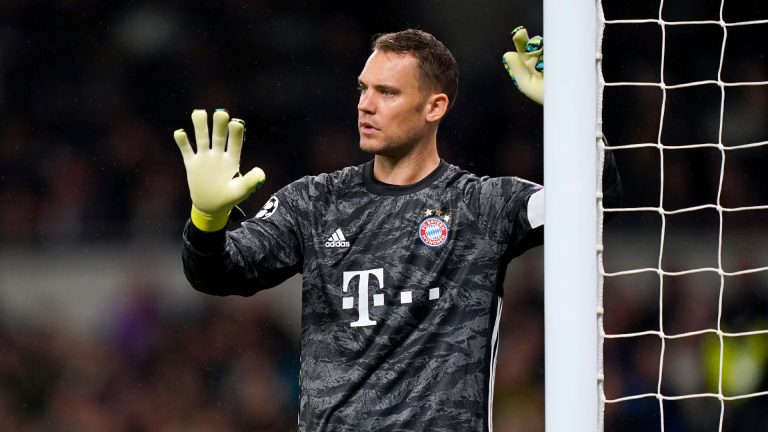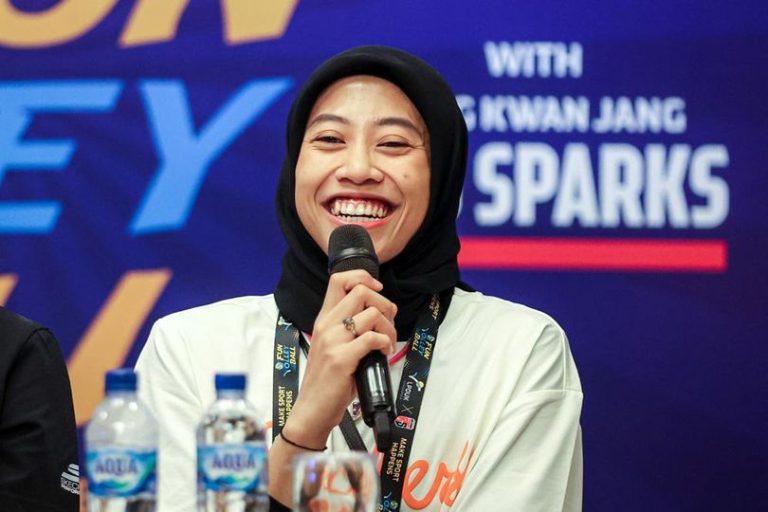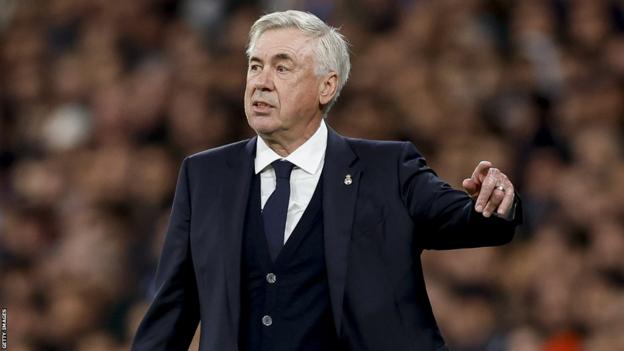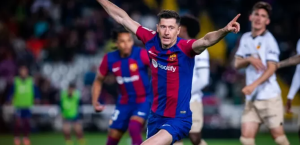The Bundesliga is more familiar with Bayern Munich. During 2018/19 season, Borussia Dortmund re-emerges as a bully to Bayern’s monopoly as it did several years ago. But there is one other team that has always stolen the attention, especially in the last three seasons: RasenBallsport Leipzig.
If the previous two seasons Leipzig became a discussion because they were able to push over the top board when only promoted to the top division in the 2016-17 season – even immediately ranked second – this season, Leipzig is striking thanks to its sturdy defense. Ranked number three when this article was written (week 27), Leipzig became the eldest team conceding the least.
Only 20 goals created against Leipzig. Bayern, which in the last six seasons have won the Bundesliga, have conceded 28 goals. Borussia Dortmund, which has been ranked more often this season, has conceded 30 goals. With seven matches remaining, Leipzig can record a better number of conceding goals than the 2016/17 season when they occupy the runner-up post with 39 goals conceded.
In addition, Leipzig returned to the top flight after last season only being able to rank sixth in the standings at the end of the season. Ralf Rangnick became an important figure behind Leipzig’s competitive return at the top of the Bundesliga. The philosophy of reactive football, which relies on the transition from defense to attack, is Rangnick’s main weapon in making it difficult for opponents to break into Leipzig’s goal.
Recent football has introduced many teams that play short passes from the keeper to attack. In the attacking phase, the goalkeeper and defender – especially the central defender – is responsible for “through which teams will attack?”
Goalkeepers and center backs are required to be adept at providing accurate passes while taking the right decision to attack the opponent’s weakest area, both through short passes and long passes. Therefore, possession of the ball was considered to be an indication of the “superiority” of a team being able to hold more balls, which was then also interpreted as being able to attack more.
But Rangnick was not tempted by possession football which began to flourish after the term tiki-taka was considered to be a secret Barcelona and Spain controlled world football a few years ago. The man who was born on June 29, 1958 remained firm in relying on counterattacks as the main effort in breaking into the opponent’s goal. He prefers to have a strong team in defense, but can quickly turn defensive conditions into an attacking situation.
Possession football itself was touted as attacking football. Because in possession football there is a jargon held by philosophical connoisseurs: “You will not concede if you have the ball”. But Rangnick football is the anti-thesis of the sentence: “You will not lose the ball if you do not master it”.
“You can forget possession, it will end on its own. Speed in the game is essential. Without increasing [speed] to sixth gear, you won’t be able to win against Panama or South Korea,” Rangick said as a commentator at the Süddeutsche Zeitung at the 2018 World Cup ago.
Like Jürgen Klopp, Roger Schmidt, Thomas Tuchel, or Marco Rose, Rangnick’s football philosophy is synonymous with transition football, especially from defense to attack. A quick counter-attack in the style of German football is not a deep defending counter that waits for opponents to defend before attacking. German football is better interpreted, as Jonathan Wilson also analyzed, as reactive football.
More specifically, if Klopp, Schmidt, and Rose are very identical who aggressively seize the ball in the opponent’s defense when the opponent starts the attack (high pressing), Rangnick football is somewhat different. The leading players don’t directly press the defender or the goalkeeper who has the ball.
Attempts to seize control of the ball aggressively only done when the opponent’s attack ball is sent to midfield or middle third. But the goal remains the same: the opponent loses the ball in the first phase to start the attack and then counterattack as fast as possible.
Rangnick himself is considered a “football professor” with all the knowledge of tactics and strategy. Rangnick has been a coach since 1983. At that time he was a coach and a player from the team named Viktoria Backnang. Even though he was still 25 years old.
In 1998, he talked a lot about the importance of transition and pressing the formation of four defenders at an event called ZDF Sportstudio (like Match of the Day in England). Even so many also do not agree with the nickname of the professor at Rangnick because he is considered only to understand theory, not practice.
But because of his understanding and firmness in the philosophy of football he held, since becoming the Sport Director of RB Leipzig in 2012, Rangnick immediately from coaches in accordance with his football philosophy. Alexander Zorniger was chosen inseparably from his philosophy which put forward defense forces and the transition from defense to attack (Zorniger was fired by Brøndby because of this strategic problem). Proven Zorniger can promote Leipzig from division 4 to division 2 in just two seasons.
After firing Zorniger, Rangnick tried to bring Thomas Tuchel, but failed. Sascha Lewandowski who was replaced by Roger Schmidt in Leverkusen was negotiated to join, but did not meet the agreement. The two trainers have characters that are not much different from the character to train Rangnick.
Because there is no coach who fits his ideology anymore, Rangnick also “appoints himself” as a temporary coach until the end of the season. The decision was right because at the end of the Leipzig season promotion to the Bundesliga, which means they were promoted from division 4 to the top division in only five seasons.
Ralph Hasenhüttl then became Leipzig’s coach in the Bundesliga because Rangnick wanted to focus on his position as Director of Sports. Hasenhüttl’s background besides being successful in promoting Ingolstadt to the Bundesliga is his fluency in applying counter-pressing tactics. Reactive football has become Rangnick’s reason for choosing a coach.
Not without reason he is persistent in looking for a trainer in accordance with his ideology. As director of football, he also has a big influence on the selection and recruitment of new players. The players he recruits are players who are considered to be able to play the coveted reactive football.
Please note, Diego Demme and Youssouf Poulsen, whose 2018/19 season became Leipzig’s mainstay, were Rangnick’s recruits in 2013/14, when they were still in Division 3. Emil Forsberg, Omer Damari, Luke Klostermann, Marcel Sabitzer, Marcel Halstenberg, Willi Orban , and Stefan Ilsanker is also a player who has joined since Division 2 and is still reliable today. Therefore, when Naby Këita, who was an important player in Leipzig, left Liverpool, it did not have much effect on Leipzig because the players were indeed designed by Rangnick to be able to play reactive football.
In building an attack from the goalkeeper, when the goalkeeper has the ball or is about to start the match (goal kick), there are usually three players in front of the goalkeeper: two players on both sides, one player in the middle near the arch of the penalty box.
If the team uses a four-back scheme, these three players are usually filled by two central defenders and one defensive midfielder. If you use three defenders, the player who occupies a central defender is usually the player who has the most vision of playing or has a more accurate operative ability among other central defenders, such as Leonardo Bonucci, for example.
What Rangnick did to undermine the build-up of opponents who played with the scheme above was that he prepared Leipzig in a 4-3-3 pattern when he didn’t have the ball. But unlike the other teams that use two wingers and one central striker, Rangnick relies on two central attackers and one attacking midfielder to suppress opponents. In a default situation, Leipzig does play with a basic pattern of 4-1-2-1-2.
The two leading players are usually occupied by two mainstay strikers: Timo Werner and Poulsen. What they both do when the opponent is about to do a build-up from the goalkeeper is to move wide to keep and close the pass from the center back. In the middle there is Forsberg who oversees and closes the pass to the defensive midfielder opponent.
Not only that, Werner and Poulsen were also tasked to be players who pressed opposing players who occupied the width of the field. Both of them often play the role of pressing forward. No wonder in the Wyscout record, Poulsen became the third highest number of offense players in the Bundesliga because when he entered the middle third area the pressure of the Leipzig players would be more aggressive to seize possession and make the transition. Leipzig is also the third-highest number of teams to breach opponents, losing only to Augsburg and Hoffenheim.
But when Leipzig has the ball, if Poulsen-Werner is not the Leipzig player who holds the ball, both of them will move in the middle while Forsberg will come down to pick up the ball. Both sides are filled by full-back players like Klostermann, Halstenberg, Nordi Mukiele, or Marcel Sabitzer if the Leipzig archetype uses 4-2-2-2.
The function of Forsberg behind Werner-Poulsen cannot be separated from the long pass scheme which is often practiced by Rangnick’s squad. Leipzig’s goal kick is also rarely sent to defenders or players who are in defensive third. The ball is often kicked away towards the front-line trio who docked.
Poulsen with a height of 1.93 meters is a formidable player in air ball duels. This scheme is quite effective because Leipzig is the first ranked team in the matter of winning air duels (50.55%) in the Bundesliga. If it fails, the midfielders, including Forsberg, are ready to welcome the second ball so that the transition and the Leipzig attack scheme continues.
With many sending long passes, plus Leipzig’s toughness in counter-pressing, Leipzig became the team that most often controlled the ball in a third of the opponent’s defense. Leipzig operands in the offensive third to be the most by 1903 (until the 27th week), above Bayern. Diego Demme and Kevin Kampl are also included in the list of players with the highest number of passes (per 90 minutes) in the Bundesliga, both ranked third and fourth.
A lot of playing in a third of an opponent’s defense is Leipzig’s way of building a defense system as well as an attack system. Because the more the ball is far from the goal, the less the ball is near their goal. Still according to Wyscout data, Leipzig is currently “only” 231 times getting shots from opponents, where it is the second least after Bayern.
On the other hand, when you get the ball close to the opponent’s goal, the opportunity to create opportunities will be even greater. In 27 weeks, a total of 375 shots or chances have been created by Leipzig, the highest number in the Bundesliga after Bayern, Hoffenheim and Bayer Leverkusen.
But of course Leipzig isn’t the perfect team. Although the scheme succeeded in minimizing the number of attacks by opponents, the Leipzig scheme is currently not maximized because the matter of scoring matters they still lose to other top teams. If Bayern as a fertile team can score 69 goals, Leipzig is 20 goals adrift. Yet the probability of scoring their goals is the third highest in the Bundesliga (after Bayern and Hoffenheim). That’s why Leipzig failed to become a champion candidate this season.
Everything needs a process. At least Rangnick managed to get Leipzig back on the right path. Leipzig became the team to be feared again. Rangnick managed to restore the identity of the game Leipzig who had lost in their second season in the Bundesliga so displaced to the middle of the board.
Sooner or later, considering that Leipzig has become the eldest with the youngest average at this time, Rangnick will find a more precise formula in attacking and defending to make Leipzig the “big” team in the Bundesliga: with or without him as head coach. With this exact system as well, Leipzig does not have to worry if their players will be “robbed” by other teams (especially Bayern).
















